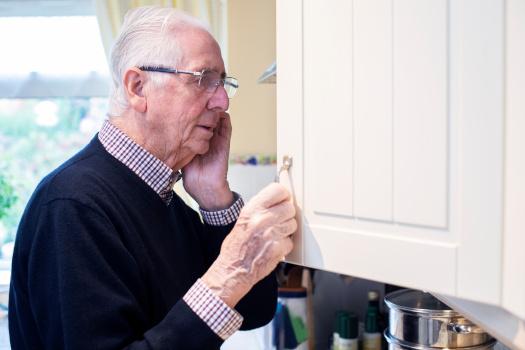Maintaining independence and dignity is a top priority for most seniors as they age. For many, aging doesn’t mean giving up control over their lives—it simply means needing a little extra help. Choosing home care Miami allows older adults to receive personalized assistance while continuing to live life on their own terms. This type of care empowers seniors to stay active, make decisions, and remain in the familiar comfort of their homes, all while having professional caregivers available for support when needed.
Understanding the Importance of Independence in Aging
Independence plays a vital role in emotional and mental well-being. Seniors who can maintain a sense of control over daily activities—like grooming, cooking, or taking walks—tend to experience higher self-esteem and reduced depression. Home care services are designed to provide just the right level of support without overstepping, allowing older adults to participate actively in their care and continue doing the things they enjoy most.
How Home Care Encourages Daily Self-Sufficiency
A key advantage of home care is its focus on maintaining self-sufficiency. Caregivers assist with routine tasks such as dressing, bathing, medication reminders, and light housekeeping. However, they also encourage seniors to do what they can on their own. This partnership fosters confidence and helps prevent feelings of dependency. Over time, seniors develop a sense of pride in continuing to handle personal routines, no matter how small they may seem.
Emotional Benefits of Preserving Dignity
Dignity is about feeling valued and respected, especially when one’s abilities change. In-home caregivers understand the emotional importance of this and provide compassionate, respectful assistance. Simple gestures—like knocking before entering a room, involving the client in decisions, and maintaining privacy—help seniors feel respected and in control. This respectful approach builds trust, which is crucial for emotional well-being and a positive care experience.
Personalized Care That Respects Individual Preferences
Home care isn’t a one-size-fits-all service. Each plan is tailored to meet the senior’s specific needs, preferences, and health conditions. Caregivers adapt to the individual’s pace, routine, and lifestyle. This personalization means seniors don’t feel like they’re being forced into a system but instead supported in the way that suits them best. This customized approach enhances both confidence and comfort, fostering a strong sense of dignity.
The Role of Companionship in Promoting Confidence
Loneliness can erode self-esteem and independence among seniors. Home care services include companionship, offering emotional support and meaningful interaction. Caregivers become trusted friends who listen, share stories, and engage in activities that bring joy. This emotional connection helps seniors feel less isolated, more appreciated, and more motivated to maintain a fulfilling daily routine.
Encouraging Mobility and Physical Activity
Maintaining physical independence often depends on staying active. Home caregivers support seniors with light exercises, daily walks, or safe mobility assistance within the home. Regular movement not only strengthens muscles and improves balance but also boosts confidence and mental health. This encouragement to stay active allows seniors to retain control over their physical abilities for as long as possible.
Building Confidence Through Safe Living Environments
Safety concerns often lead families to believe seniors must move to assisted living facilities. However, home care professionals are trained to identify and eliminate hazards at home. By installing grab bars, improving lighting, and ensuring clutter-free spaces, caregivers create a secure environment. This allows seniors to move freely and independently, knowing that help is always nearby if needed.
Respecting Privacy and Personal Boundaries
Maintaining dignity goes beyond physical care—it involves respecting personal space and privacy. Professional caregivers are trained to provide discreet and gentle assistance. Whether helping with personal hygiene or mobility, they prioritize the client’s comfort and modesty. This compassionate approach reinforces a senior’s self-worth and prevents feelings of embarrassment or helplessness.
Supporting Mental and Emotional Wellness
Home care also addresses mental health, which plays a key role in maintaining independence. Caregivers encourage activities that stimulate the mind, such as reading, puzzles, or engaging conversations. They also help seniors maintain social connections with friends and family. This emotional nourishment leads to greater satisfaction and helps seniors maintain a positive outlook on life.
Family Involvement in Preserving Independence
One of the greatest advantages of home care is how it allows families to stay involved. Regular communication between caregivers and family members ensures everyone is informed about the senior’s progress. Families can participate in care decisions and spend quality time with their loved ones without the stress of full-time caregiving. This partnership helps seniors feel supported by both professionals and family alike.
The Long-Term Impact of Home Care on Dignity
Over time, seniors receiving consistent home care often report feeling happier and more independent than those in institutional settings. They maintain a sense of purpose by being in familiar surroundings and continuing to make daily choices. The preservation of independence and dignity leads to a higher overall quality of life, reinforcing why home care remains the preferred option for aging with grace.
In conclusion, Miami home care goes far beyond providing physical assistance—it empowers seniors to live meaningful, self-directed lives. By focusing on respect, safety, emotional support, and individualized care, home care services nurture independence and dignity every step of the way. Families can rest assured knowing their loved ones are not only receiving expert care but also living with confidence, pride, and comfort in their own homes.



